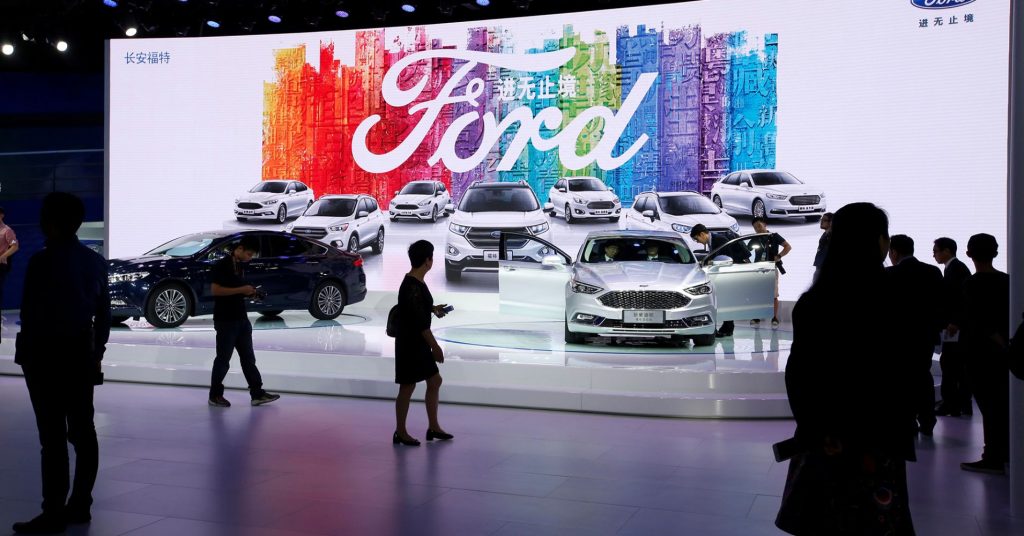Apple Chief Executive Tim Cook has blamed an economic slowdown in China, and the Sino-U.S. trade war, for its downgrade to its first-quarter sales guidance.
That marks a dramatic change in tune from the leader of the tech giant who just under a year ago, during Apple’s earnings for the first quarter of 2018, said “everywhere I look, I feel really good about how we’re doing in China.”
In a letter to investors on Wednesday, Cook said the company forecast lower-than-expected sales primarily in China.
“While we anticipated some challenges in key emerging markets, we did not foresee the magnitude of the economic deceleration, particularly in Greater China,” he said in a letter to investors.
“In fact, most of our revenue shortfall to our guidance, and over 100 percent of our year-over-year worldwide revenue decline, occurred in Greater China across iPhone, Mac and iPad,” Cook said, detailing how China’s slowing economy had been impacted by trade tensions which had affected consumers of Apple products in the region.
While Cook signaled a continued commitment to China, saying that “despite these challenges, we believe that our business in China has a bright future” his comments mark a change in Apple’s perspective on China, a country that the CEO had been positive about throughout 2018 despite trade tensions.
CNBC has collated a selection of Tim Cook’s recent comments on Apple’s earnings in China over the last year and his thoughts on the trade war and tariffs.
Apple saw revenue growth of 16 percent in Greater China in its fiscal fourth quarter earnings year-on-year (equating to $11.4 billion) and a 19 percent rise quarter-on-quarter although this had come after a pretty dismal third quarter for the tech giant.
Cook said that the “business in China was very strong last quarter. We grew 16 percent, which we’re very happy with. iPhone in particular was very strong. Very strong double-digit growth there. Our other products category was also stronger, in fact a bit stronger than even the company, overall company number,” he said in November.
As the company’s earnings were announced on November 1, trade tensions with China had reached a peak following a series of tit-for-tat, and an increasingly large amount, of tariffs on Chinese and U.S. imports.

On the same day as the earnings were announced, President Donald Trump and Chinese President Xi Jinping had a phone call in which a mutual emphasis on the importance of trade was stressed.
Asked in the company’s November 1 earnings call whether Apple had any plans to diversify the supply chain given trade and geopolitical events, Cook said the company was not over-reliant on China.
“If you look at the products that we are manufacturing, they’re manufactured everywhere. We have significant content from US market, from Japan to Korean to many countries. Great content from China as well. There are many hands in the products, the vast majority of R&D is in the U.S.,” he said according to a transcript of the call online, adding that he was still optimistic a solution to trade tensions could be found.
Needless to say, by the end of November, Trump told the Wall Street Journalist he was not likely to delay an increase in the tariff rate (from 10 to 25 percent) on $200 billion worth of Chinese goods on January 1. Trump also suggested he could put a 10 percent tariff on Apple iPhones and laptops imported from China.
As Apple announced its results for the fiscal third quarter, the company said it had seen 19 percent year-on-year growth in China (but a 29 percent dip quarter over quarter), it also announced it had opened its 50th retail store there in the quarter.
Asked again about the impact of the trade tensions, Cook again said China continued to see growth but he expanded on trade tariffs too, saying that they could damage economic growth.
However, Cook said the company was evaluating a proposal to slap tariffs on $200 billion worth of Chinese goods — this proposal (which was enacted in September 2018 by Trump) came after the U.S. decided to slap a 25 percent tariff on $50 billion in Chinese goods in June 2018.
Announcing Apple’s second quarter results, the company said it had seen 21 percent year-on-year growth in Greater China, the company’s “strongest growth rate from that segment in ten quarters,” according to CFO Luca Maestri.
Revenue had dropped from $17.9 billion in the region in the first quarter to $13 billion in the second quarter, however, equating to a 27 percent decline.
Asked about the threat of a brewing trade war between the U.S. and China, Tim Cook appeared sanguine, saying:
Apple reports its first quarter earnings for 2018, announcing an 11 percent growth in revenue, year-on-year, in the Greater China region, and a whopping 83 percent rise in quarterly earnings growth in the region.
Tim Cook said sales of the iPhone were key to the company’s success in the region in three months ending December 30, 2017.
“We had an all-time record for revenue in mainland China. Of course, a key part of that was iPhone, and as I’d mentioned before, Kantar reported that the top five selling smartphones in urban China were all iPhones,” he said, a transcript of the earnings call online noted.
“We could not be more pleased with how we’re doing, and if you look at the other—we obviously grew share on for iPhone in the quarter, but we also grew share in iPad and Mac during the quarter, and wearables were extremely strong there in the quarter. And so, everywhere I look, I feel really good about how we’re doing in China.”
– CNBC’s Steve Kovach, John Schoen, Jacob Pramuk, Ryan Browne and Christine Wang contributed to this story.

